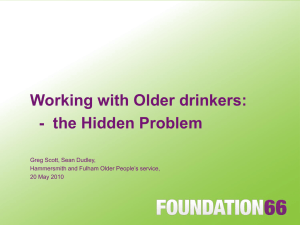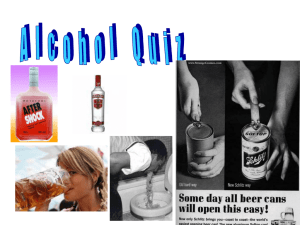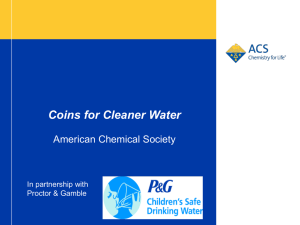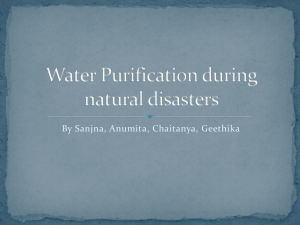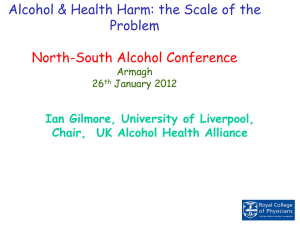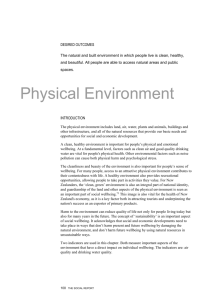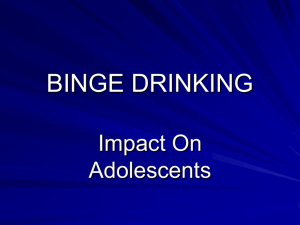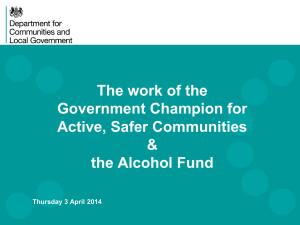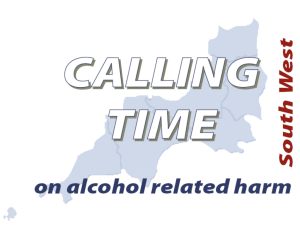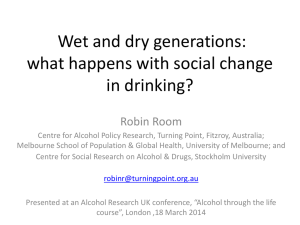`Gotta buy`: Femininity, the compulsory purchase
advertisement
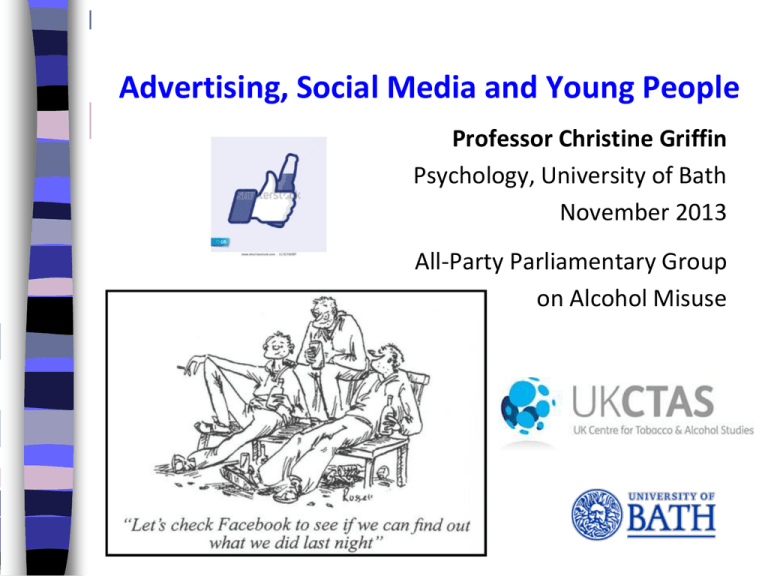
Advertising, Social Media and Young People Professor Christine Griffin Psychology, University of Bath November 2013 All-Party Parliamentary Group on Alcohol Misuse Young people’s drinking and online alcohol marketing – key questions What forms does alcohol marketing via social media take? 2) How does this engage with young people drinking practices & their social media use? 3) What do young people think about online alcohol marketing? 1) Young people and the culture of intoxication Drinking to get (very) drunk Linked to alcohol availability, price, targeted products, venues aimed at youth More liberal alcohol policies, licensing regulation Relationship between exposure to online alcohol marketing & consumption Social networking and young people’s drinking Rapid growth in use of social media & mobile technologies (smartphones) amongst young people Facebook most popular - 1 billion users in October 2012 Drinking and getting drunk most common themes in young people’s Facebook pages Sharing photos of self and others drinking (and drunk) very common amongst young people Digital alcohol marketing Digital marketing budgets increasing rapidly Diageo: Social media marketing accounted for 21% of its marketing budget in 2010 In 2011 Diageo brands had collectively enjoyed a 20% increase in sales as a “direct result of Facebook activity” Goal is “user engagement” (Socialbakers, 2013) Alcohol marketing via social media Adverts on FB / twitter/ across social media ‘Likes’, ‘comments’ and ‘shares’ on FB pages of drink brands, bars, clubs Promotions, Events – ‘real world tie-ins’ Smartphone apps And much much more …. Smirnoff Nightlife Exchange project ‘Let’s get wasted’ and other smartphone apps Young people’s drinking and social media project Aotearoa (New Zealand) Research Team Antonia Lyons, Ian Goodwin & Patricia Niland (Massey University, Wellington) Tim McCreanor, Helen Moewaka Barnes, Acushla Dee O’Carroll & Tuiloma Lina Samu (Whariki Research Unit, Massey University, Auckland) Also: Fiona Hutton (Victoria University, Wellington, Aotearoa/NZ) Kerryellen Vroman (University of New Hampshire, USA) Supported by the Marsden Fund, administered by the Royal Society of New Zealand (contract MAU0911). New Zealand study: Stage 1 37 friendship group discussions with 154 participants Stage 2 23 individual interviews with laptop/online access Stage 3 Analysis of online representations of young people drinking, including advertising via social media Dylan: I think the reason why we have the drinking photos is because it makes your life like more fun, so you're always doing something Lo: It's memories as well and all your friends are out together on the piss and you do have fun. So you take photos and some of them will be funny photos, and you'll just look at them and crack up and go oh my gosh, do you remember when you were that wasted? [laughing] Extract 1 European/Pakeha Group 1; 4 females Krystal oh yeah, if you don’t really remember what happened the night before, like you will see a photo and it will trigger your memory and then you will remember what happened Extract 2 Maori Group 24; 2 males 2 females Trish: Alex: Jack: Mark: Alex: Trish: Mark: Jack: Alex: Trish: Jack: Mark: Alex: Do you see any alcohol advertising online? Yeah - no. there might be some somewhere I don’t think - oh are they allowed to? I never see it online bro. Not on Facebook or anything. I always just see it on a billboard Have you seen any Facebook profiles, like Tui or Cruiser or? Oh yeah [all nod]. Yeah. Yeah I have seen that. You can like them. And then oh it'll just be on Facebook so often you'll come across a friend in the notification or the update his profile update it'll just say [name] likes 42 Below New Zealand vodka and you click on it and it'll be like a description of what it's about. Stuff like that. What flavours. Where you can get it from. Do you think that could be advertising? Yeah it's gotta be. Oh not necessarily. Not necessarily Extract 3 European /Pakeha group Group 7; 3 males Key research findings Young people exposed to a great deal of alcohol-related marketing online Not just exposure –interactive engagement Online alcohol marketing infiltrates young people’s social lives and drinking practices Young people do not necessarily view online alcohol marketing as advertising Implications for public health Current regulatory & health promotion strategies outmoded Behavioural change approaches too individualised Regulation of alcohol marketing should include social media & digital / mobile technologies Monitoring & ‘transparency reports’ on industry activities The sobriety test puts users through a series of “coordination and cognition” tests such as “drag your mouse in a straight line,” “type the alphabet backwards,” or “follow the finger.” A low score results in a friendly admonition to avoid sending that tweet or whatever the case may be and a recommendation for a taxi company based on your phone’s geolocation. The app allows users to customize which sites they wish to block and at what time of the day they are most likely to commit regrettable acts. New Zealand study at: http://drinkingcultures.info/ Follow on twitter: @drinkcultures UK Centre for Tobacco & Alcohol Studies at: www.ukctas.ac.uk Follow me on twitter: @chris_griffin55 Email: c.griffin@bath.ac.uk References McCreanor, T., Lyons, A., Goodwin, I., Moewaka Barnes, H., Griffin, C. and Hutton, F. (2013). Youth drinking cultures, social networking and alcohol marketing: Implications for public health. Critical Public Health. 23(1): 110-120. Goodwin, I., Lyons, A., Griffin, C. and McCreanor, T. (forthcoming). Ending up online:@ Interrogating mediated youth drinking cultures. In: A. Bennett and B. Robards (eds.) Mediated Youth Cultures: The Internet, Belonging and New Cultural Configurations. London: Palgrave. Griffin, C., Szmigin, I., Bengry-Howell, A., Hackley, C. and Mistral, W. (2013). Inhabiting the contradictions: Hypersexual femininity and the culture of intoxication among young women in the UK. Feminism and Psychology. 23(2): 184-206.

